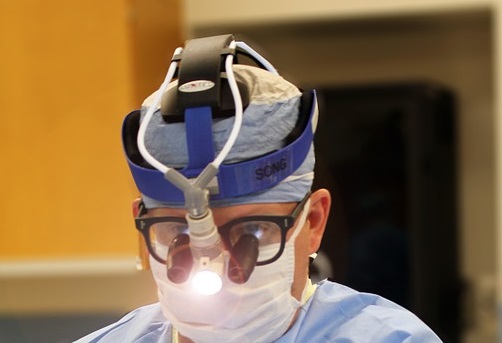Everyone’s been to a hospital at some point in their life. I’m not saying that these are usually enjoyable experiences… but it is a luxury nonetheless. Hospitals are quite obviously a vital part of our healthcare system as well as a vital part of our lives. What do you do when your wife goes into labor? You take her to the hospital. What do you do if your child becomes very sick? You take them to the hospital.
Imagine no longer having that luxury. Or at least not having that luxury within a reasonable distance to your home. That is the reality facing some people today. Rural hospitals are closing their doors and leaving many people without an emergency care center sensibly close.
One of the main reasons that Espy Services does what it does is to help out businesses and healthcare organizations overcome these negative operating margins so that they can better serve you. We don’t want to see rural hospitals close their doors because they simply don’t have the funds to pay for their overhead. We understand how important healthcare is to the United States. That is why we do our part by offering cost saving opportunities that help hospitals get back in the positive. A hospital may not even notice the waste that they have incurred until they get an outside perspective. We can give that outside perspective in order to inform hospitals of areas where they could be saving money.
However, we are not the only solution to keeping rural hospital’s doors open. There are other answers to this situation and we are going to take a look at a few of those.
DOWN-SIZING… OR RIGHT-SIZING
According to Modern Healthcare, the average occupancy rate for rural hospitals in 2016 was a mere 52.2%. This statistic shows us that hospitals are grossly underutilizing the beds that they have in their facility. When many hospitals are trying to meet around a 75% benchmark of occupancy, most fall short of accomplishing that goal and many fall severely short of the objective. Because it costs an average of almost $2,000 to operate each one of these hospital beds, the majority of these rural facilities are operating in the red.
There are many areas in this country where there are a couple of rural hospitals within a 3-to-5-minute drive of each other. Yet, these hospitals are still only occupying about half of their beds and operating within the red. Consolidation of two rural facilities that are close together can help the hospitals to fill their beds, maintain their independence, and raise their bottom line because the consolidation offers them the opportunity to cut down on expenses.

ACQUISITIONS
Health systems will look to acquire rural hospitals if it aligns with their long-term vision and they have the capital to do so. These health systems can provide guidance and capital to help rural hospitals get back on track. According to the article in Modern Healthcare, Christus Health, based out of Irving, Texas, acquired Good Shepherd Medical Center back in February of 2017.
“Christus Health formed teams of administrative and physician leaders to analyze each expense category. It helped save money by bundling services and renegotiating supplier contracts, cutting about 50 jobs, and eliminating redundant or unnecessary clinical procedures. Ultimately, Christus helped Good Shepherd cut out about $40 million in expenses,” reads the Modern Healthcare article.
These health systems can provide rural hospitals with the opportunity to improve efficiencies and cut down on the unnecessary spending that is plaguing their operations. As in this example, it can have a major impact on the expenses of a hospital. This allows them more room to effectively recruit top talent, cut down on the turnover rate, and be more competitive in the industry.
The barriers to rural healthcare are everywhere, but there are solutions to many of these problems that should be brought to light. There are things that can be done to give rural hospitals a chance at survival and every opportunity that is there needs to be taken in order to ensure that we maintain this service that positively impacts so many. I hope you enjoyed the light read today. If you have any questions or comments, give us a call at (812) 277-1499 or email us at contactus@espyservices.com and we would be happy to talk with you.
As always, thanks for reading. Have a wonderful day and enjoy yourself. We will see you next week.
Written by Trey Turner – TTurner@EspyServices.com
Follow Trey on Twitter or connect with him on LinkedIn


